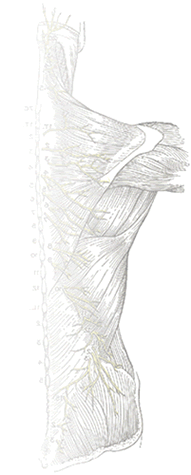
Does Medicare cover chiropractic?
Does Medicaid, Family Health Plus or Child Health Plus cover chiropractic?
Does Workers’ Compensation or Automobile No-Fault insurances cover chiropractic?
My insurance only covers a set numbers of visits to a chiropractor. What if I need more?
Do I need a referral from my Medical Doctor?
How well educated are Doctors of Chiropractic?
Can chiropractors order x-rays and lab tests?
Can chiropractors prescribe medication?
How safe are chiropractic adjustments?
Do chiropractic adjustments hurt?
I have had back surgery. Can I still go to a chiropractor?
I have arthritis. Can I still go to a chiropractor?
I have osteoporosis. Can I still go to a chiropractor?
Can chiropractic care help children and seniors?
I heard once you go to a chiropractor, you have to keep on going?
I heard if you “crack” your knuckles you can get arthritis. Is it safe to “crack” your back?
I don’t have any back pain. Do I still need chiropractic care?
Is there any benefit to regular chiropractic treatment?

Q: Does Medicare cover chiropractic?
A: Yes. Medicare covers chiropractic care after your annual deductible has been met.TopQ: Does Medicaid, Family Health Plus or Child Health Plus cover chiropractic?
A: Unfortunately, these subsidized insurances do not currently cover chiropractic care.TopQ: Does Workers’ Compensation or Automobile No-Fault insurances cover chiropractic?
A: Yes. Both Workers Compensation and No-Fault cover chiropractic care. You must first report the accident or injury to your employer or insurance company.TopQ: My insurance only covers a set numbers of visits to a chiropractor. What if I need more?
A: We may be able to apply for more visits from your insurance carrier. TopQ: Do I need a referral from my Medical Doctor?
A: As primary care providers, you do not need a referral to see a chiropractor. If you are in a HMO there may be exceptions in your policy.TopQ: How well educated are Doctors of Chiropractic?
A: Chiropractors are well educated professionals. Doctors of chiropractic receive 7-8 years of formal education. The education curriculum is similar in both content and length to medical school. Emphasis is placed on anatomy, physiology, pathology, diagnostic procedures and chiropractic techniques. All programs of study include a clinical internship. Before entering practice all Doctors of Chiropractic must complete and pass national boards and receive state certification.TopQ: Can chiropractors order x-rays and lab tests?
A: Yes. Chiropractors can order diagnostic imaging such as x-rays, CT scans and MRI. Similarly, chiropractors can order lab work and assay panels.TopQ: Can chiropractors prescribe medication?
A: As a natural approach to healthcare and a drugless and non-surgical profession, chiropractors do not prescribe medication or perform surgical procedures.TopQ: How safe are chiropractic adjustments?
A: Chiropractic care is extremely safe and effective. While side effects are exceedingly rare, all procedures carry some amount of risk which your Doctor of Chiropractic will be happy to explain.TopQ: Do chiropractic adjustments hurt?
A: Most patients experience tremendous relief with chiropractic adjustments. Most techniques are extremely comfortable and pleasant. On occasion, discomfort from treatment to highly sensitive areas of injury is noted. Your Doctor of Chiropractic will work with you to ensure all treatment remains tolerable.TopQ: I have had back surgery. Can I still go to a chiropractor?
A: Yes. Patients who have undergone spinal surgery are still candidates for chiropractic care. Gentle techniques are generally utilized while avoiding the actual post-operative site altogether.TopQ: I have arthritis. Can I still go to a chiropractor?
A: Yes. With the exception of a few extremely progressive types of rheumatoid arthritis, chiropractic care is typically extremely beneficial to those with degenerative joint disease. Your doctor will probably want to review your x-rays prior to treatment.TopQ: I have osteoporosis. Can I still go to a chiropractor?
A: Yes. Gentle and conservative techniques are well suited for these individuals. Your doctor will probably want to review your x-rays or bone density report prior to treatment.TopQ: Can chiropractic care help children and seniors?
A: Yes. Chiropractic care can be beneficial for patients of all ages. Techniques and approaches are always adjusted to meet the needs and specific situation of every patient. TopQ: I heard once you go to a chiropractor, you have to keep on going?
A: As a patient and health care consumer, you always remain in control of your healthcare. While some conditions lend themselves to long-term supportive care, most resolve amazingly fast. While many patients, having experienced the benefit of chiropractic care, choose to continue with supportive or maintenance care, how long you choose to benefit from chiropractic care remains entirely up to you.TopQ: I heard if you “crack” your knuckles you can get arthritis. Is it safe to “crack” your back?
A: The idea of “cracking” your knuckles or back causing arthritis is false. The sound you hear during a chiropractic adjustment is actually nitrogen gas that has settled in your joints being released. It is perfectly harmless and often the hallmark of a good adjustment.TopQ: I don’t have any back pain. Do I still need chiropractic care?
A: Even in the absence of pain, you may still have a need for chiropractic care. Many problems begin prior to an awareness of blatant symptoms such as pain and discomfort.TopQ: Is there any benefit to regular chiropractic treatment?
A: Yes. Regular chiropractic care offers the benefit of preventing, detecting and correcting problems early before they become detrimental or debilitating.Top
Naples Valley Chiropractic 2014
Web Maintenance by IB Design Studios
Home I About
Dr. Waldeis I Contact Us I Sitemap
